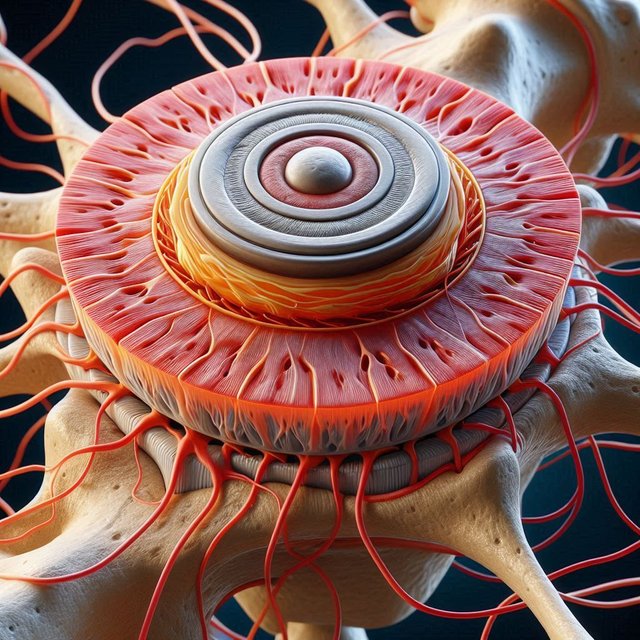A Revolutionary Approach to Osteoarthritis Treatment: Regenerating Cartilage and Reducing Inflammation

Osteoarthritis, or joint degeneration, is a chronic condition that leads to the gradual breakdown of cartilage in the joints, often causing pain and reduced mobility. While many view osteoarthritis as an irreversible condition requiring surgical intervention, there are alternative, holistic treatment methods that focus on regenerating cartilage and reducing inflammation to improve the quality of life of those affected. These methods emphasize a comprehensive approach that combines proper nutrition, anti-inflammatory treatments, exercise, and mental well-being.
Osteoarthritis and the Possibilities for Healing
Osteoarthritis is a degenerative disease characterized by the wear and tear of cartilage in the joints, which can lead to pain and stiffness. Traditionally, osteoarthritis has been viewed as an incurable condition, often leading to the assumption that surgery is the only solution. However, it is increasingly recognized that osteoarthritis can be managed, and even reversed, through a combination of lifestyle changes and medical interventions.
Inflammation plays a central role in the progression of osteoarthritis. While inflammation initially serves as a protective mechanism in the body, aiding in the removal of damaged tissues, when it becomes chronic, it contributes to the continuous breakdown of cartilage. Therefore, reducing inflammation is key to promoting cartilage regeneration and preventing further joint damage.
The Role of Nutrition in Reducing Inflammation
Nutrition plays a crucial role in managing osteoarthritis. Excess weight and poor dietary choices are known to exacerbate inflammation in the body, leading to more severe symptoms of osteoarthritis. Fat cells can trigger inflammatory processes that worsen joint degeneration, making it important to adopt an anti-inflammatory diet.
A balanced diet that includes foods with natural anti-inflammatory properties can help reduce inflammation and support cartilage regeneration. Reducing the intake of refined sugars and carbohydrates, while increasing the consumption of vegetables, herbs, and leafy greens, is essential for controlling inflammation. Whole foods rich in antioxidants, vitamins, and minerals support the body’s healing processes and may help reduce joint pain and inflammation.
The Impact of Anti-Inflammatory Spices
Certain spices, such as turmeric, cinnamon, ginger, and cloves, have been found to have powerful anti-inflammatory properties. These spices can be incorporated into the daily diet to help combat chronic inflammation. For example, turmeric, well-known for its anti-inflammatory compound curcumin, has been shown to reduce symptoms of osteoarthritis by alleviating joint pain and swelling. Additionally, consuming these spices in various forms, including teas or supplements, can contribute to long-term relief.
In addition to spices, incorporating a variety of fruits, vegetables, and herbs into the diet provides a wealth of nutrients that support overall health. Many of these foods are rich in compounds that reduce inflammation, helping to protect cartilage and improve joint function.
Exercise and Joint Activation
Physical activity is another essential component in managing osteoarthritis. Exercise helps stimulate the immune system, promoting the regeneration of cartilage by activating macrophages—immune cells that play a key role in tissue repair. Movement also increases blood circulation, which delivers oxygen and nutrients to the joints, aiding in their recovery.
Low-impact exercises, such as walking, swimming, and cycling, are particularly beneficial for people with osteoarthritis. These exercises help maintain joint mobility without putting excessive strain on the affected areas. Strengthening exercises, focusing on the muscles surrounding the joints, can further support joint stability and reduce pain.
The Role of Mental Health in Recovery
Mental well-being plays an important role in osteoarthritis treatment. Chronic pain and the stress associated with managing a long-term condition can negatively impact a person’s mental state. Negative emotions and stress can hinder the healing process, making it crucial to adopt techniques that support mental health.
Mindfulness, stress management techniques, and practices such as meditation or yoga can help improve mental resilience, reduce anxiety, and support the healing process. Positive thinking and maintaining motivation are important factors that contribute to managing the disease effectively.
A Multidimensional Approach to Healing
A holistic, multidimensional approach to treating osteoarthritis combines proper nutrition, anti-inflammatory treatments, exercise, and mental health support. This integrated method offers a promising alternative to invasive treatments and helps manage symptoms effectively.
By focusing on lifestyle changes, including an anti-inflammatory diet, regular physical activity, and mental health support, individuals with osteoarthritis can experience significant improvements in their condition. With proper care and a commitment to these approaches, osteoarthritis is not an irreversible disease but a manageable condition that can be improved or even reversed over time.